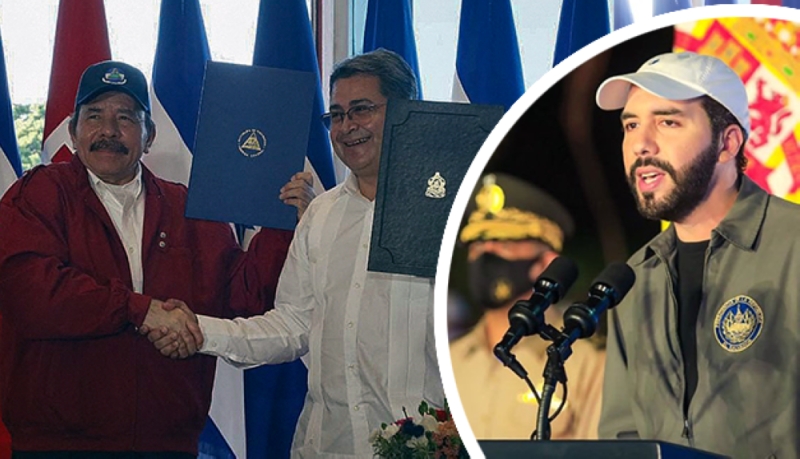El Salvador rejects a treaty between Honduras and Nicaragua regarding sovereignty over the Gulf of Fonseca

The Gulf of Fonseca has been the epicenter of the conflict between Honduras, Nicaragua and El Salvador, mainly due to the fishing of fishermen that goes beyond the borders of one country or another. / FileDEM.
El Salvador has not yet accepted the final judgment of The Hague, which ratifies the right of Honduras to exit to the Pacific Ocean, and even rejects the Treaty of HN-Nicaragua accepting the rule of The Hague.” Statement from the Presidency of Honduras.
According to the President of Honduras, Juan Orlando Hernandez, El Salvador has shown her “total rejection of the validity of the treaty” Through a statement sent by the Salvadoran government to the Organization of American States on December 13 last year.
The Government of El Salvador expresses its complete rejection of the validity of the said treaty … and any legal effect of it, for its violation of traditional and customary international law, as well as the provisions of the judgment of the International Court of Justice. September 11, 1992, in the land, sea and island boundary dispute, and in particular that any demarcation of the relevant areas, i.e. the Gulf of Fonseca and the waters beyond, shall be carried out by the three countries in accordance with an international law agreement.” Statement from the Government of El Salvador.
Likewise, he said he does not accept the treaty It contains the obvious defects of nullity, by pretending to create illegally and in contravention of the provisions of the said ruling of the International Court of Justice, obligations on the State of El Salvador, without its knowledge or consent.
In this sense, Juan Orlando Hernandez encouraged El Salvador to the treaty ratifying Honduras’ exit to the Pacific Ocean, rather than doubling its army and acquiring new weapons.
We encourage El Salvador to support the bicentennial treaty signed by Honduras and Nicaragua, instead of doubling its army, acquiring new weapons, and trying to divide its neighbors.” Honduran President, Juan Orlando Hernandez.
And the President of El Salvador, Nayib Bukele, had already confirmed, via social networks, that he would not sign the “geopolitical treaty with Ortega”, because he would be subject to criticism from “the Democrats in the White House” if he ratified the agreement. .
Last Wednesday, October 27, the governments of Honduras and Nicaragua signed the “Treaty of Borders between the Republic of Nicaragua and the Republic of Honduras in the Caribbean Sea and Waters Outside the Gulf of Fonseca”. An agreement recognizing Honduran sovereignty over the Gulf of Fonseca, likewise, which includes a development plan for it.
In the agreement, dubbed the “integration treaty,” the two presidents said they accept and abide by the boundary established between Honduras and Nicaragua in the Caribbean Sea established by the International Court of Justice in its October 8, 2007 ruling.
According to the text, the Hague Tribunal Urging the parties to negotiate in good faith the demarcation line of the territorial sea remaining between the land boundary point established by the King of Spain’s decree in 1906 and the maritime boundary point established by the Court.
El Salvador still does not accept the final verdict of The Hague – ratifying Honduras’ right to exit into the Pacific Ocean – until it rejects the Treaty of HN-Nicaragua accepting the rule of The Hague. Our presence today in Managua demonstrates how important its relationship with Nicaragua is to HN. pic.twitter.com/BPAbslS5e5
– Juan OrlandoH (@JuanOrlandoH) January 10 2022




:quality(85)/cloudfront-us-east-1.images.arcpublishing.com/infobae/P3M34YHXTVFZTCYTQQSSPRA4ZM)